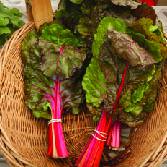-
CATEGORY ::
- All Seeds /
- All Flower Seeds /
- All Aster Seeds
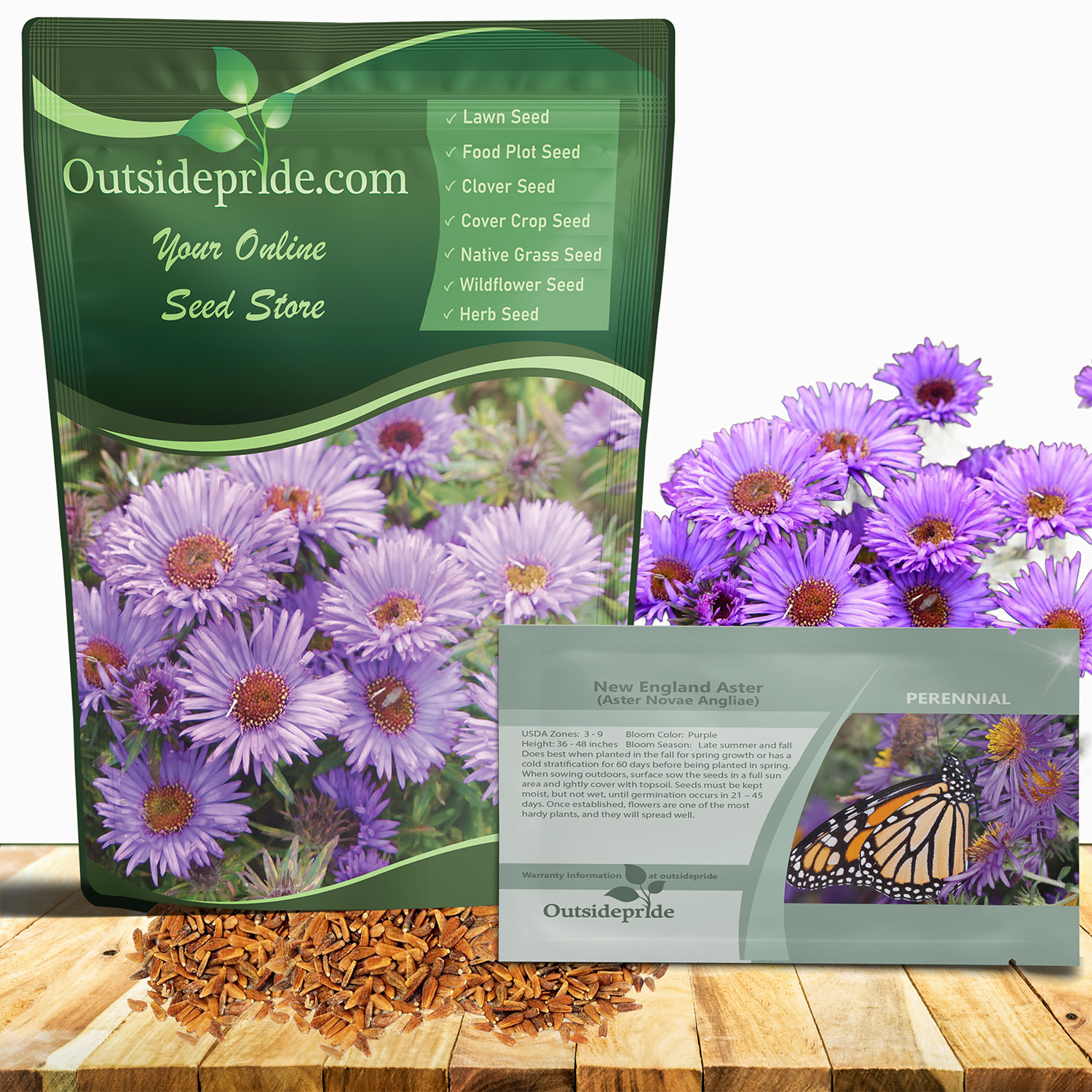

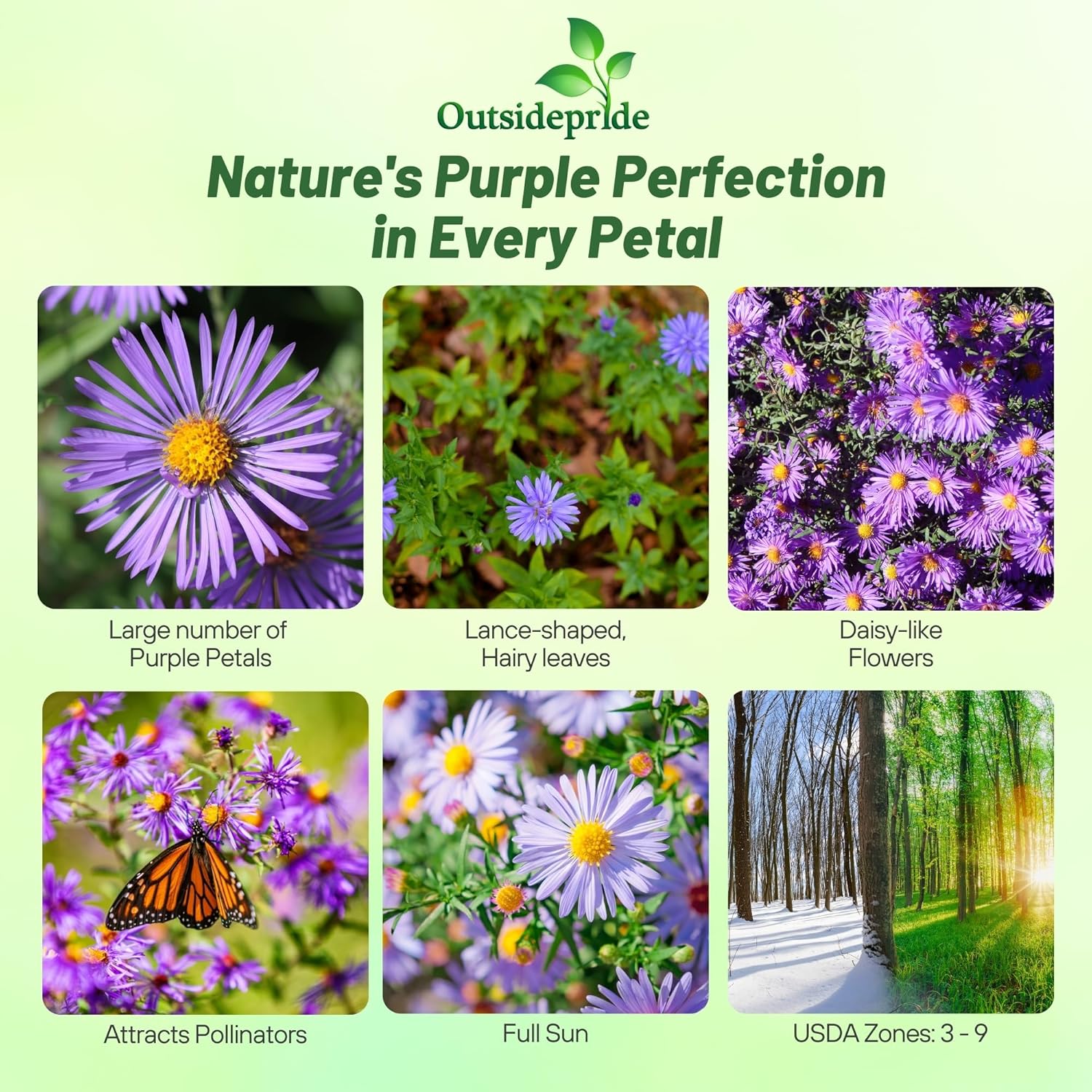
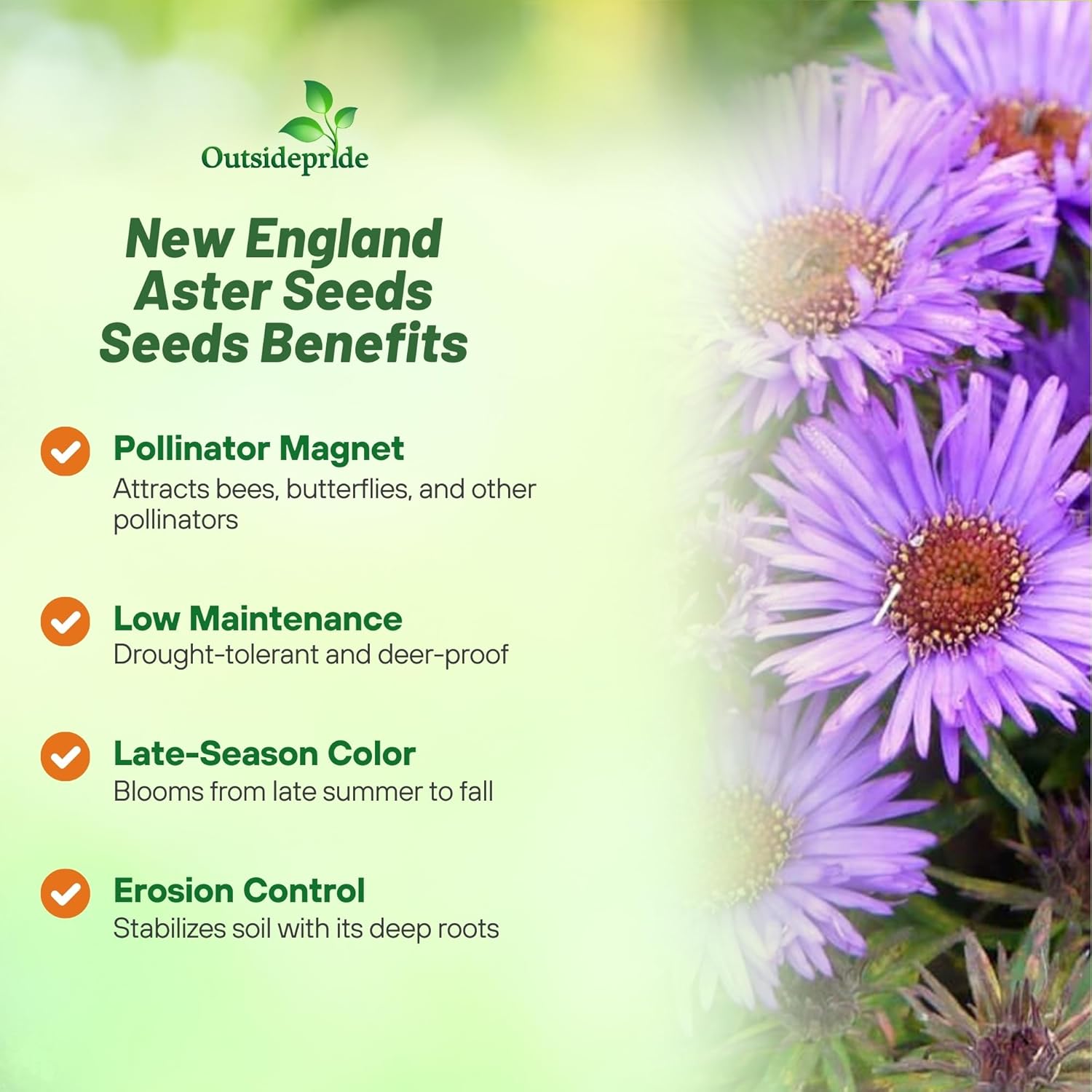
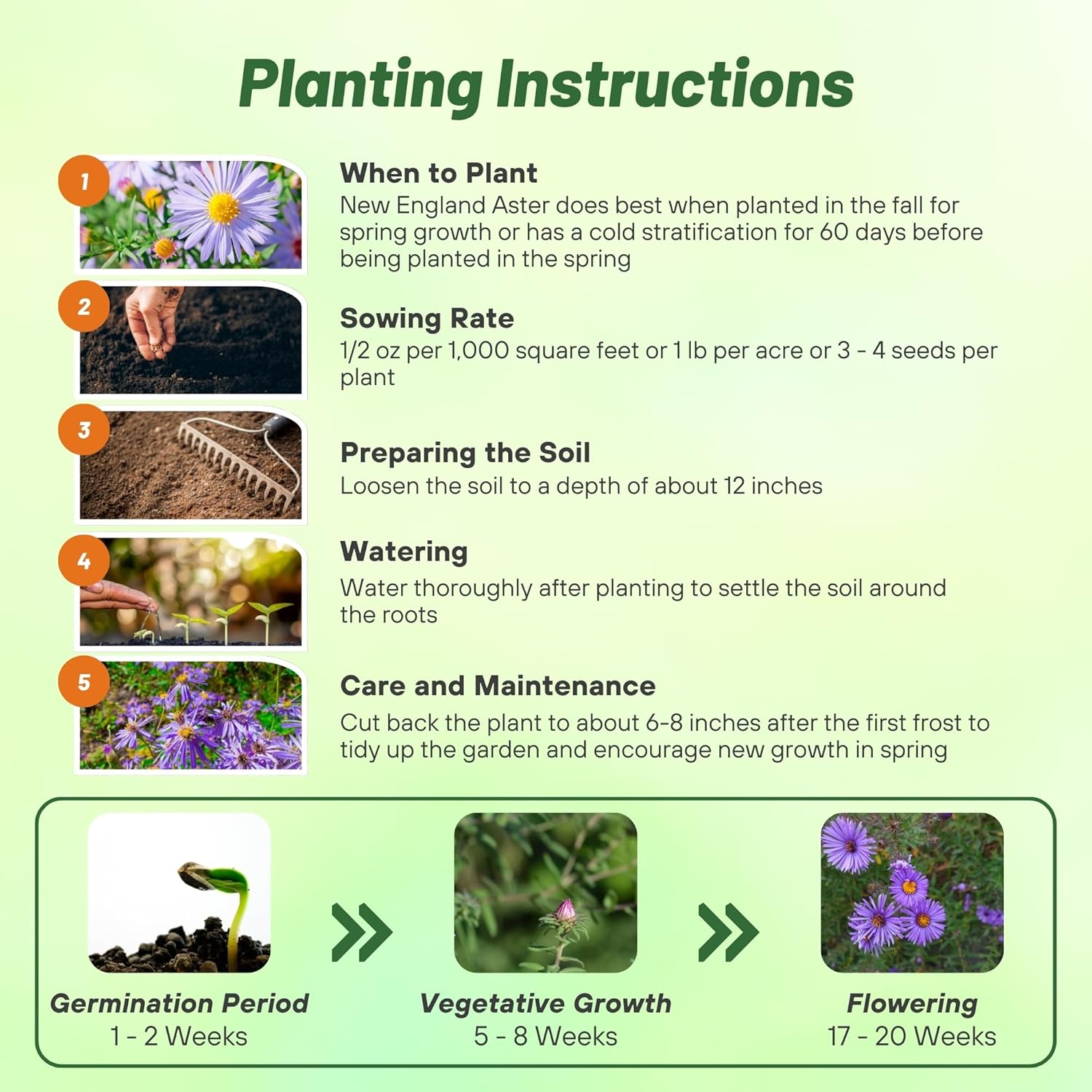
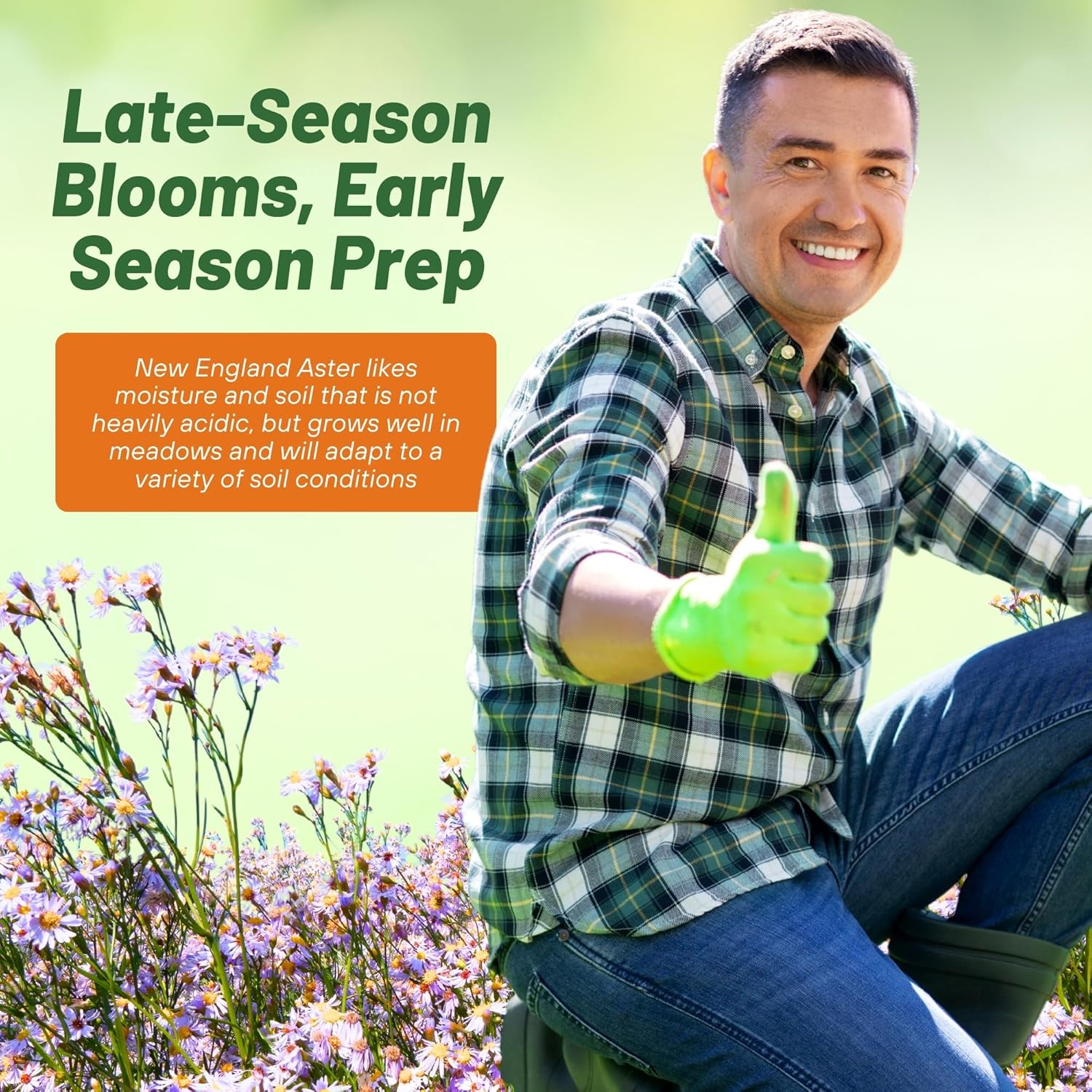
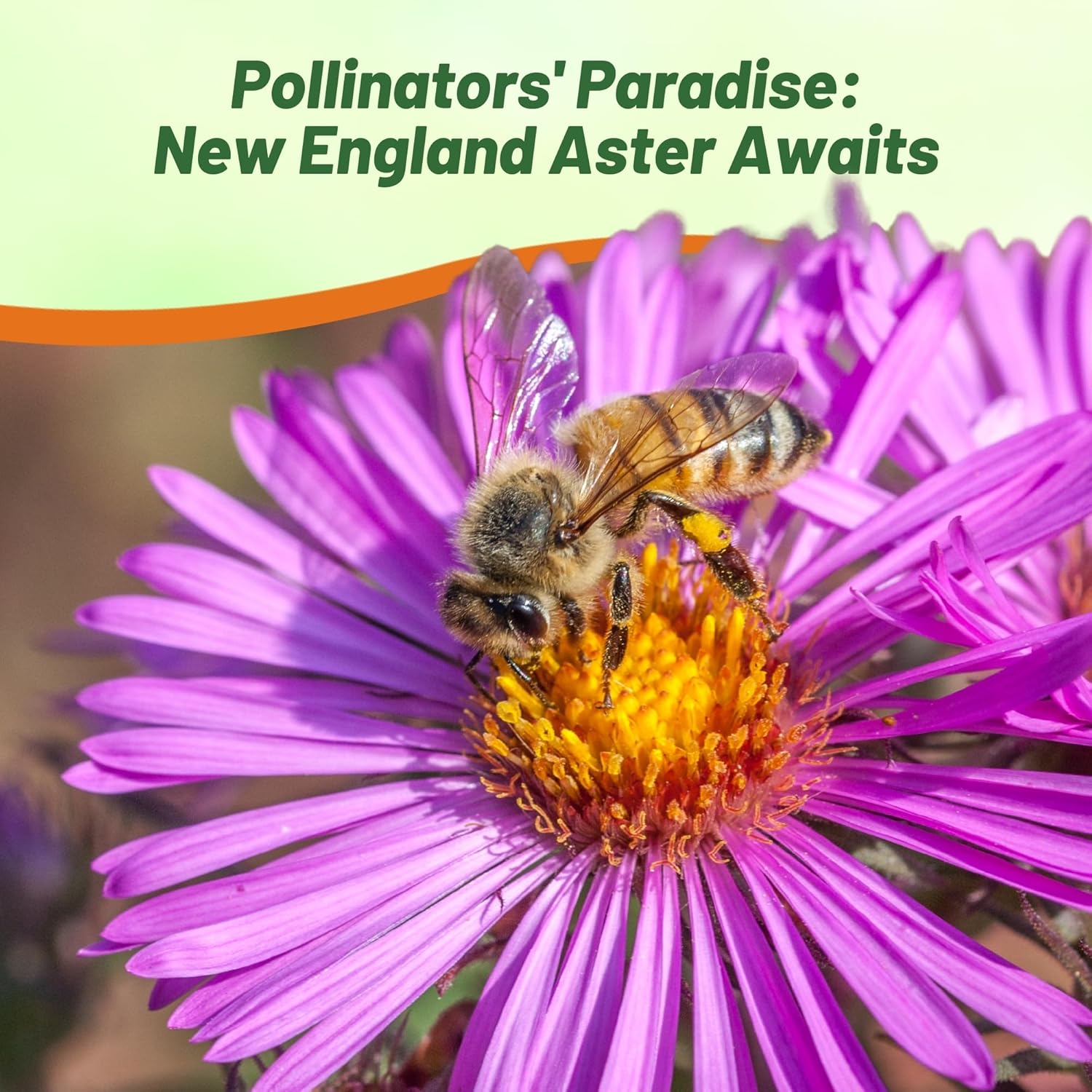



Aster Seeds - New England
About...
New England Aster (Aster Novae Angliae) - This wild flower will grow in all regions of North America in full sun. New England Aster likes moisture and soil that is not heavily acidic, but grows well in meadows and will adapt to a variety of soil conditions.
MORE ASTER OPTIONS
Planting Directions
TEMPERATURE
65 - 75F
AVERAGE GERM TIME
21 - 45 days
LIGHT REQUIRED
No
DEPTH
Sow seed on surface, lightly cover
SOWING RATE
1/2 ounce per 1,000 square feet or 1 pound per acre or 3 - 4 seeds per plant
MOISTURE
Keep moist until germination
PLANT SPACING
24 inches
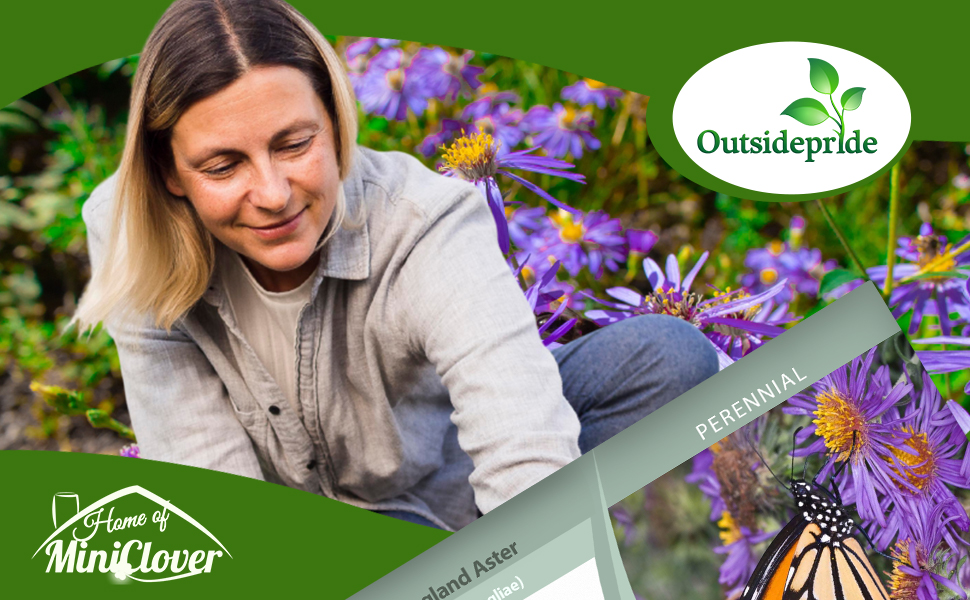
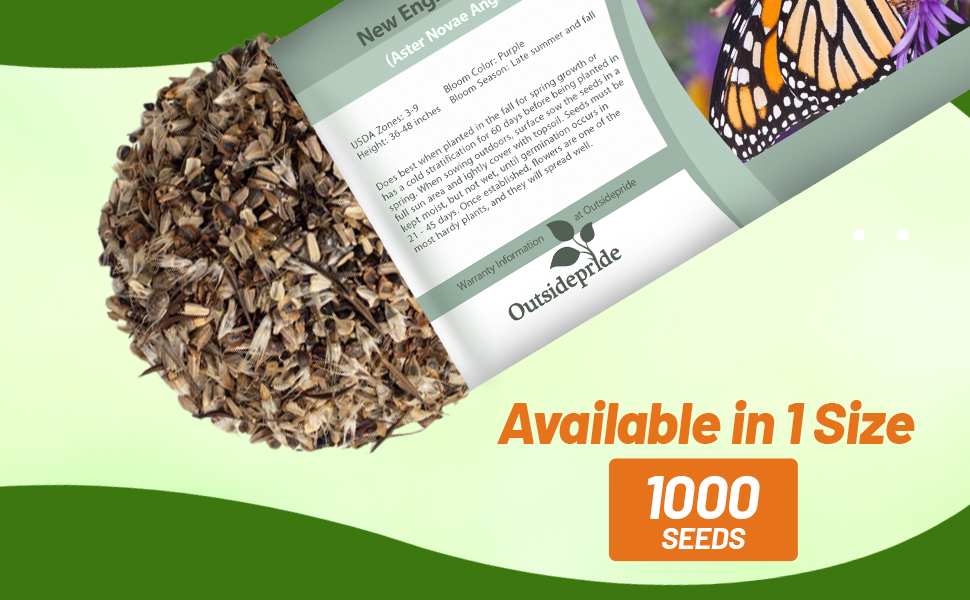
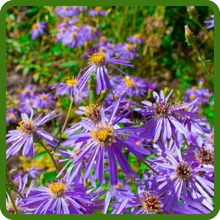
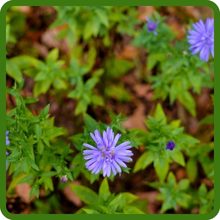
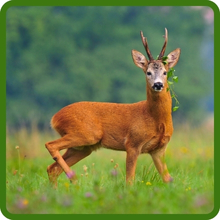

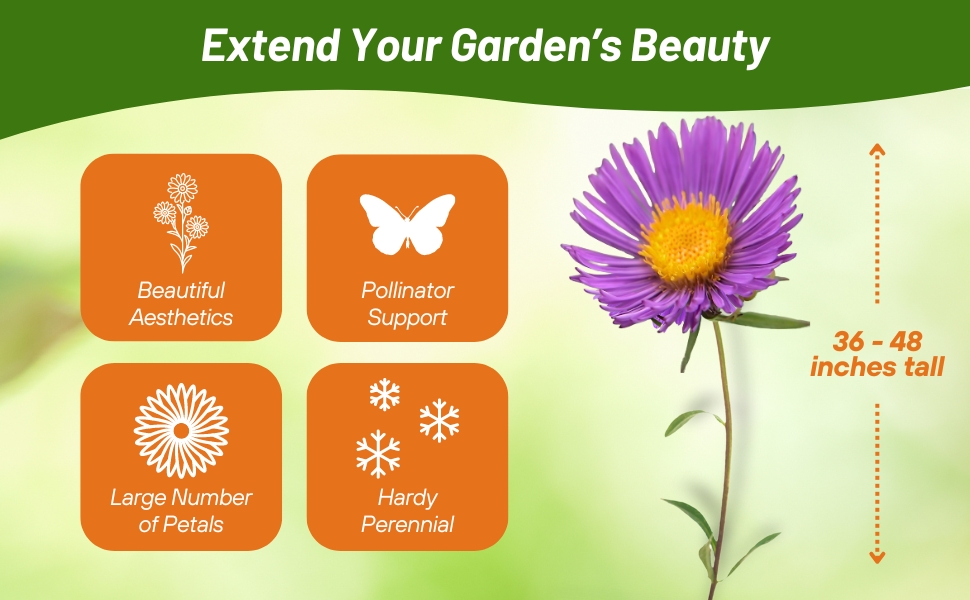
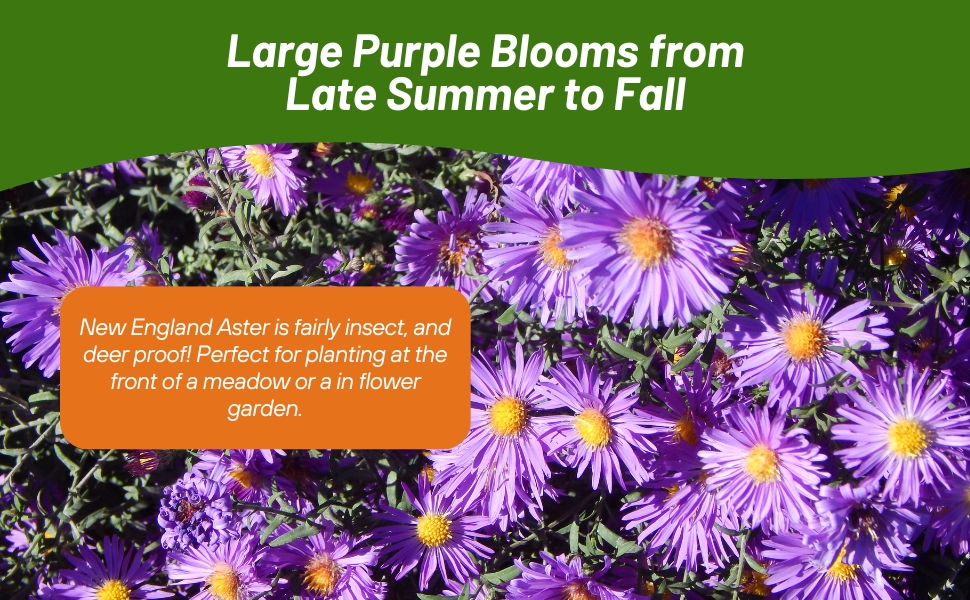
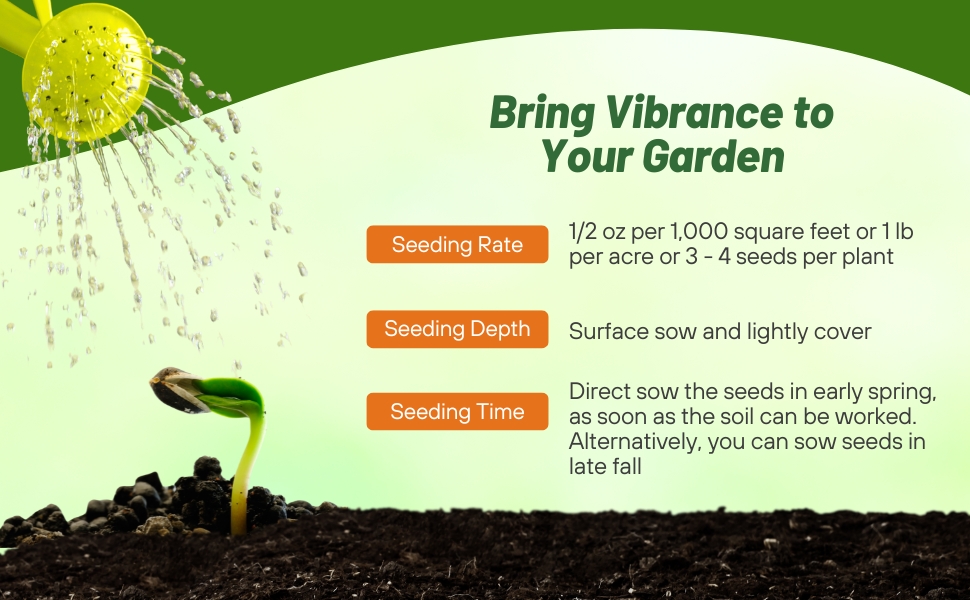
New England Aster (Aster Novae Angliae) - New England Aster seeds will grow in all regions of North America in full sun. Purple Asters are so lovely, and one of the more easily identifiable features of the New England Aster is the large number of purple petals, which should be forty or more. Some wild flower specialists believe there could be more then 100. Another feature is the hairy stems and leaves that exist on most Aster plants. Truly, New England Aster is one of the most beautiful wildflowers there is, and they are so easily established by sowing wild flower seeds!
Common Questions
I thought asters were hardy perennials?
Many asters are hardy perennials but the annual aster, or China Aster, is not hardy and is grown as an annual.
Are they good for cutting?
Yes, they are excellent for cut flowers! Cut when 2/3 of the way open.
Why haven’t my asters bloomed?
There are a number of possible causes for this. Asters need full sun to grow well and bloom. They may be getting too much nitrogen, not have enough other nutrients, they may be stressed by drought or too much water, or it may just be too early. Asters bloom in fall, when days are growing shorter.
Can I grow China aster in containers?
Yes, just be mindful that they will not bloom until later summer, so combine them with summer bloomers. Make sure the container is large; they grow 24 inches tall, and use a commercial potting mix.
Do aster attract pollinators?
Yes they are butterfly magnets!
Are asters deer resistant?
Yes, asters tend to be deer resistant.
Can I grow asters in containers?
Yes, smaller varieties are fine in containers.
Planting Directions
TEMPERATURE
60 - 70F
AVERAGE GERM TIME
7 - 21 days
LIGHT REQUIRED
Yes
DEPTH
Cover seed with topsoil thinly after sowing
SOWING RATE
3 - 5 seeds per plant
MOISTURE
Keep soil slightly moist but not wet
PLANT SPACING
18 inches
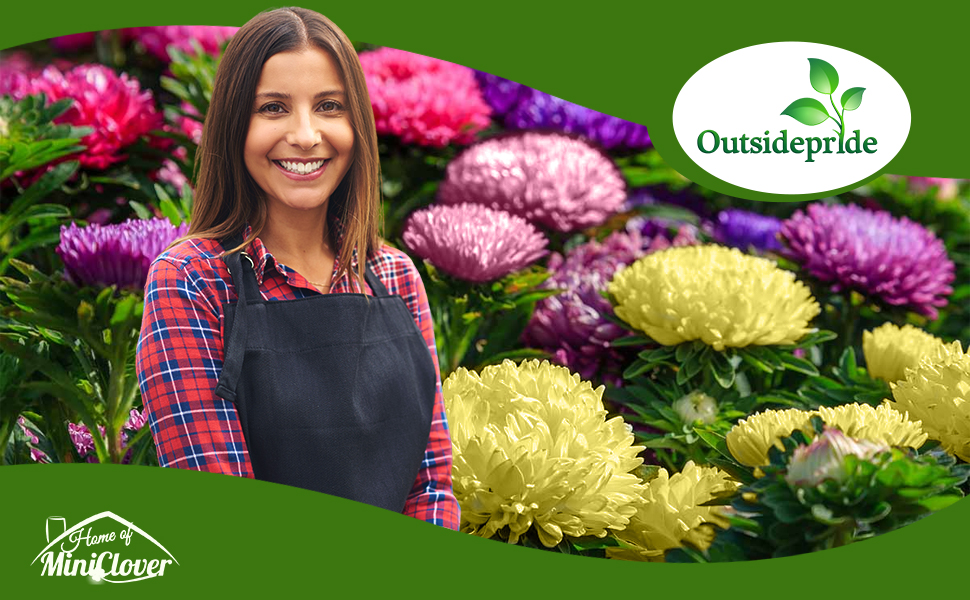
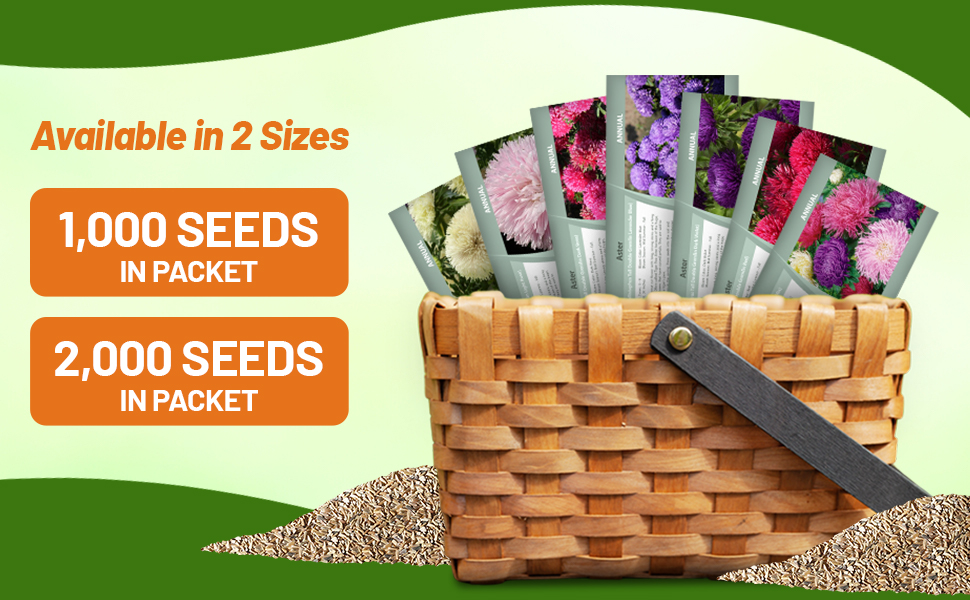
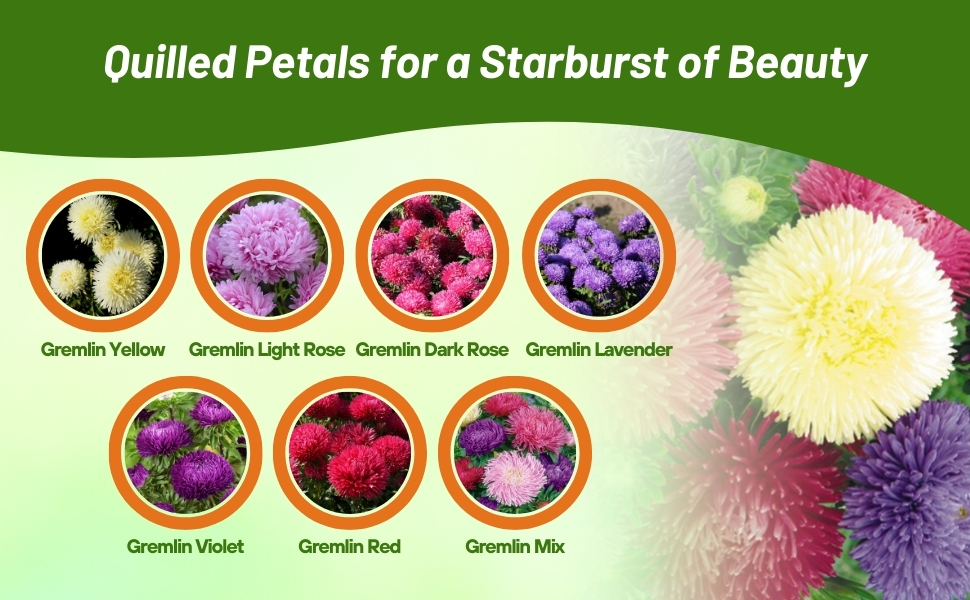
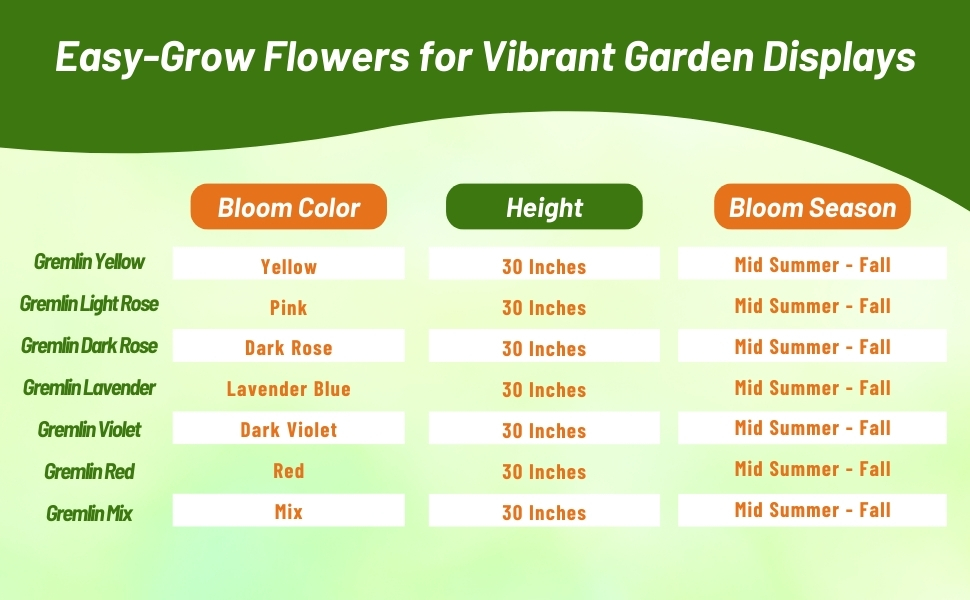
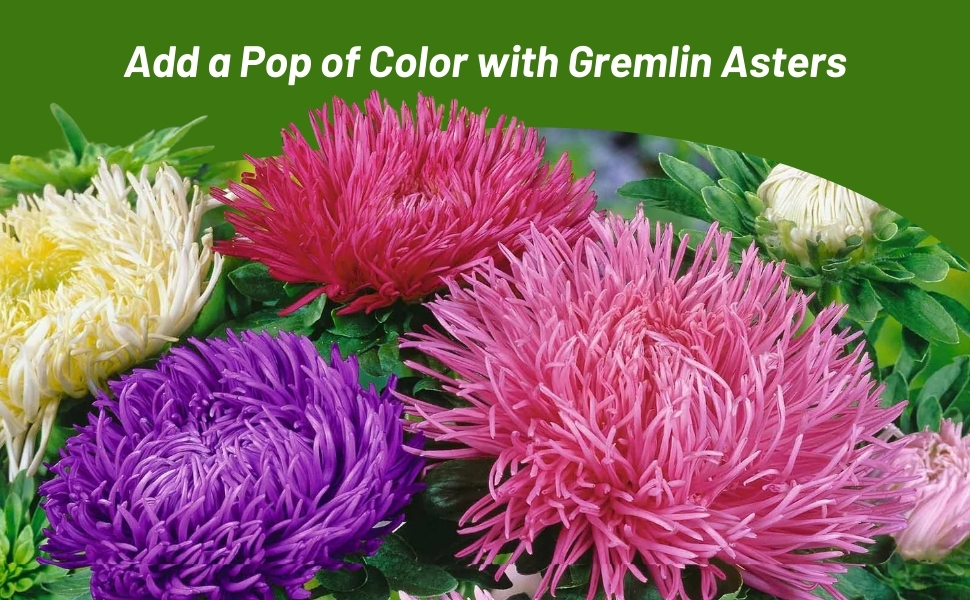
Aster (Callistephus Tall Double Gremlin Mix) - This is one Aster seed mix that every gardener will enjoy growing! Aster Callistephus is tall, 30 inches, with huge, double blooms that are full of curved petals. The colors that are in this Aster seed mix are: light and dark rose, red, lavender blue, yellow, and dark violet. Tiger Paw Asters make such a great addition to the cutting garden. With their long stems and long-last blooms, they are a must-have for arrangements. They love a position in full sun to partial shade, and they'll bloom all season for a glorious display of colors!
These Aster plants grow quickly from flower seeds and bloom heavily until the first frost. Start the Aster seeds indoors 6 - 8 weeks before the end of frost season. Press the seeds into the soil and lightly cover. Transplant the Aster plants outside once danger of frost has passed.
Common Questions
I thought asters were hardy perennials?
Many asters are hardy perennials but the annual aster, or China Aster, is not hardy and is grown as an annual.
Are they good for cutting?
Yes, they are excellent for cut flowers! Cut when 2/3 of the way open.
Why haven’t my asters bloomed?
There are a number of possible causes for this. Asters need full sun to grow well and bloom. They may be getting too much nitrogen, not have enough other nutrients, they may be stressed by drought or too much water, or it may just be too early. Asters bloom in fall, when days are growing shorter.
Can I grow China aster in containers?
Yes, just be mindful that they will not bloom until later summer, so combine them with summer bloomers. Make sure the container is large; they grow 24 inches tall, and use a commercial potting mix.
Do aster attract pollinators?
Yes they are butterfly magnets!
Are asters deer resistant?
Yes, asters tend to be deer resistant.
Can I grow asters in containers?
Yes, smaller varieties are fine in containers.
Planting Directions
TEMPERATURE
60 - 70F
AVERAGE GERM TIME
7 - 21 days
LIGHT REQUIRED
Yes
DEPTH
Cover seed with topsoil thinly after sowing
SOWING RATE
3 - 5 seeds per plant
MOISTURE
Keep soil slightly moist but not wet
PLANT SPACING
16 inches
Aster (Callistephus Tall Needle Unicom Mix) - This Aster seed mix will offer a delight of color and interest to the summer flower border or cutting garden. Colors of rose, violet, white and salmon will grace the flower border when these Aster seeds are started! Aster Callistephus blooms are unique with their large, showy blooms of needle-like petals. The Aster plants are sturdy with an upright growth habit and reach 24 inches in height. Perfect for cutting, Aster flowers are extremely rewarding to grow from flower seed!
Aster plants are not picky about soil types, but they do require full sun to partial shade to do their best. It is recommended to grow Aster flowers in a different location each summer to avoid disease.
To get a jump start on the growing season, start the Aster seeds indoors 6 - 8 weeks before the last frost is expected. For areas with long growing season, Aster seeds can also be started directly outdoors in prepared seedbeds. Make sure that frost danger has passed before either directly sowing flower seed or transplanting Aster plants started indoors. Press the flower seeds gently into the soil and lightly cover.
Common Questions
I thought asters were hardy perennials?
Many asters are hardy perennials but the annual aster, or China Aster, is not hardy and is grown as an annual.
Are they good for cutting?
Yes, they are excellent for cut flowers! Cut when 2/3 of the way open.
Why haven’t my asters bloomed?
There are a number of possible causes for this. Asters need full sun to grow well and bloom. They may be getting too much nitrogen, not have enough other nutrients, they may be stressed by drought or too much water, or it may just be too early. Asters bloom in fall, when days are growing shorter.
Can I grow China aster in containers?
Yes, just be mindful that they will not bloom until later summer, so combine them with summer bloomers. Make sure the container is large; they grow 24 inches tall, and use a commercial potting mix.
Do aster attract pollinators?
Yes they are butterfly magnets!
Are asters deer resistant?
Yes, asters tend to be deer resistant.
Can I grow asters in containers?
Yes, smaller varieties are fine in containers.
Planting Directions
TEMPERATURE
60 - 70F
AVERAGE GERM TIME
7 - 21 days
LIGHT REQUIRED
Yes
DEPTH
Cover seed with topsoil thinly after sowing
SOWING RATE
3 - 5 seeds per plant
MOISTURE
Keep soil slightly moist but not wet
PLANT SPACING
9 - 12 inches
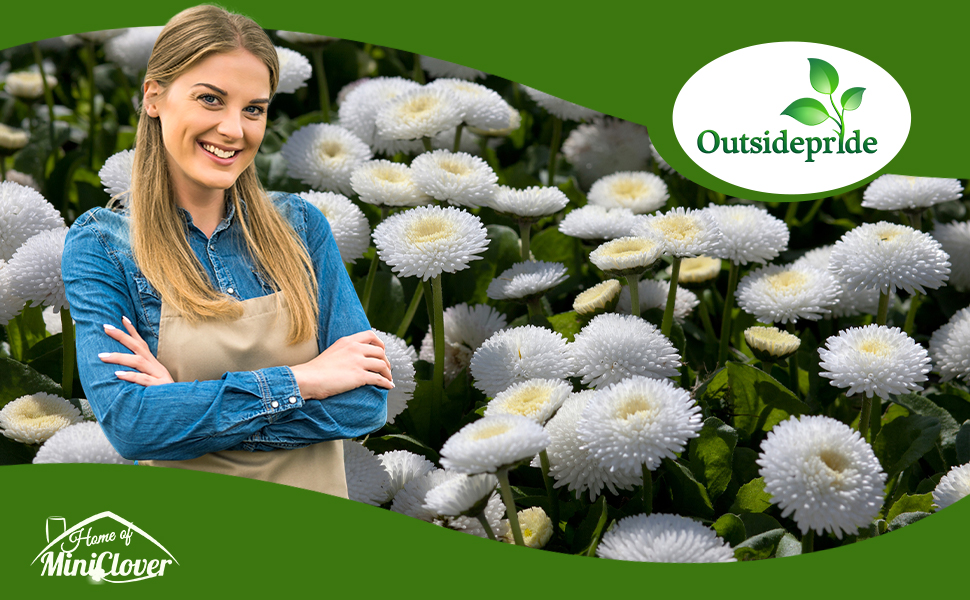
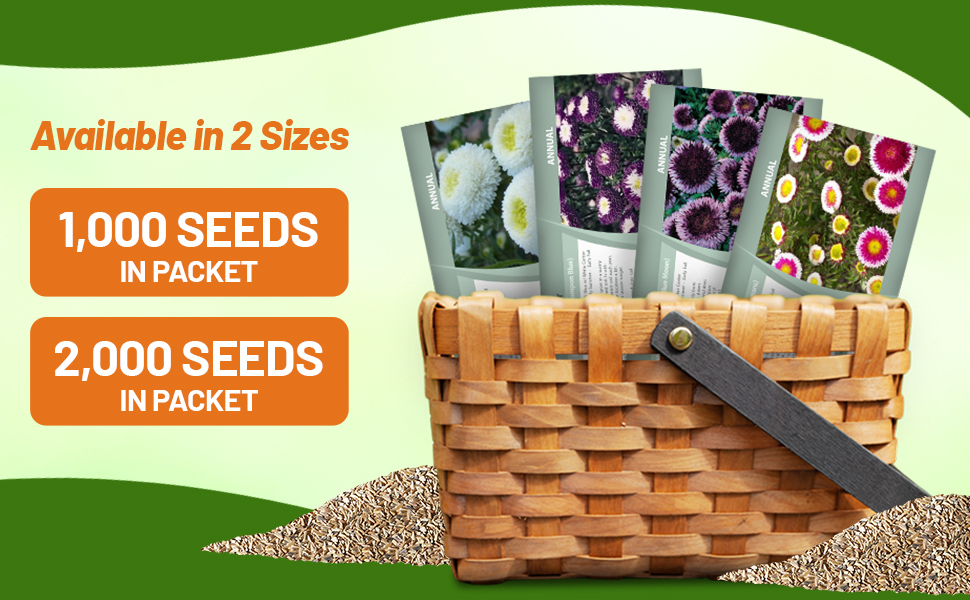
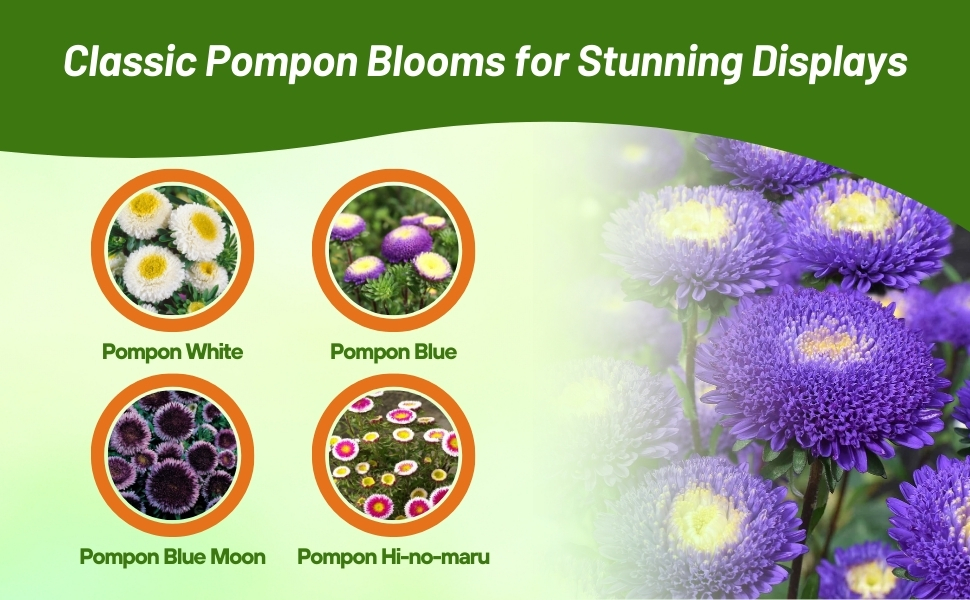
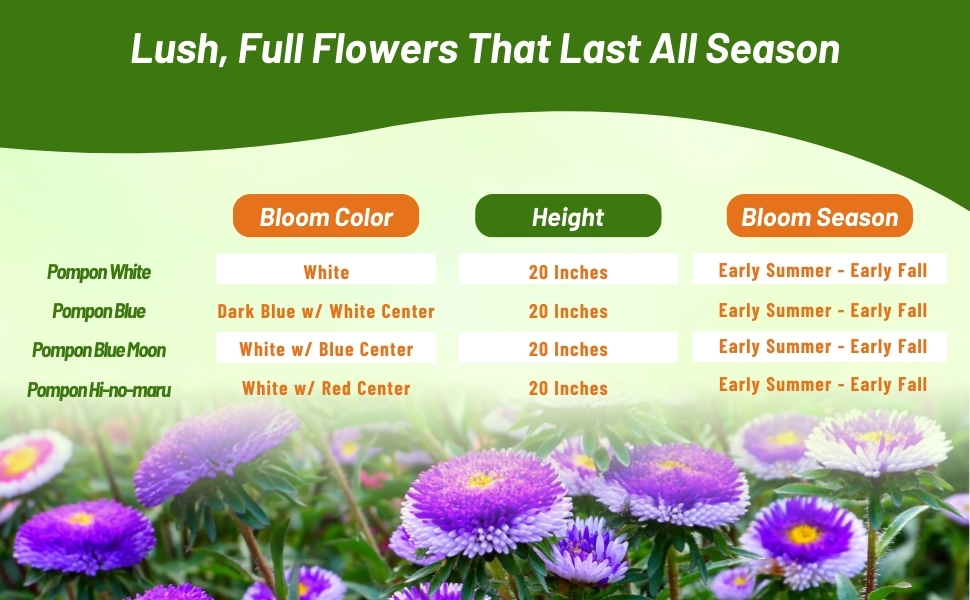
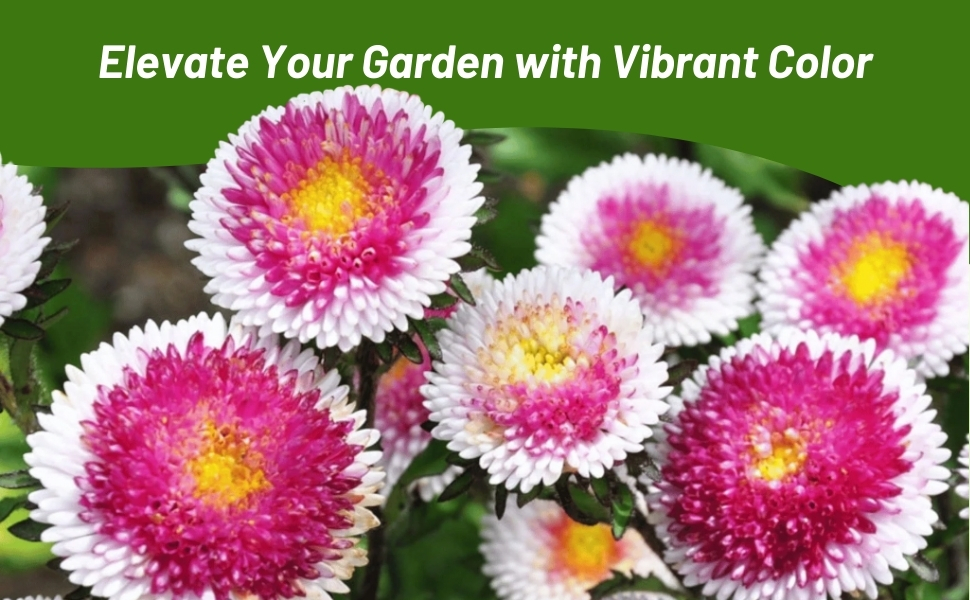
Aster (Callistephus Tall Pompon White) - Every garden needs some brilliant white blooms! These Aster seeds are easy and fast to grow giving a pure white Pompon Aster. Aster Callistephus grows to approximately 20 inches tall, and it has large pompons which are 2 - 3 inches wide and simply loaded with petals.
Common Questions
I thought asters were hardy perennials?
Many asters are hardy perennials but the annual aster, or China Aster, is not hardy and is grown as an annual.
Are they good for cutting?
Yes, they are excellent for cut flowers! Cut when 2/3 of the way open.
Why haven’t my asters bloomed?
There are a number of possible causes for this. Asters need full sun to grow well and bloom. They may be getting too much nitrogen, not have enough other nutrients, they may be stressed by drought or too much water, or it may just be too early. Asters bloom in fall, when days are growing shorter.
Can I grow China aster in containers?
Yes, just be mindful that they will not bloom until later summer, so combine them with summer bloomers. Make sure the container is large; they grow 24 inches tall, and use a commercial potting mix.
Do aster attract pollinators?
Yes they are butterfly magnets!
Are asters deer resistant?
Yes, asters tend to be deer resistant.
Can I grow asters in containers?
Yes, smaller varieties are fine in containers.
Planting Directions
TEMPERATURE
60 - 70F
AVERAGE GERM TIME
7 - 21 days
LIGHT REQUIRED
Yes
DEPTH
Cover seed with topsoil thinly after sowing
SOWING RATE
3 - 5 seeds per plant
MOISTURE
Keep soil slightly moist but not wet
PLANT SPACING
9 - 12 inches
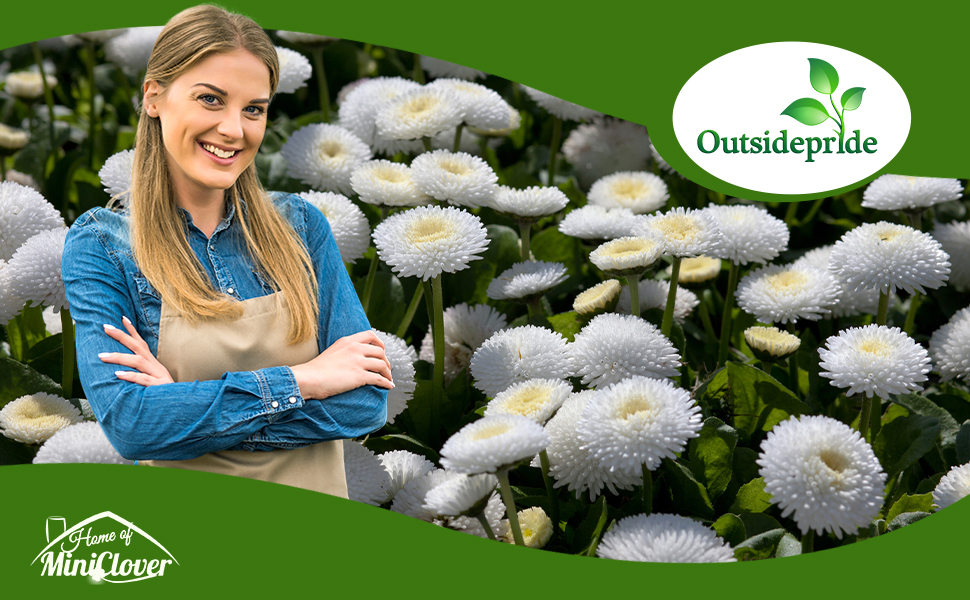
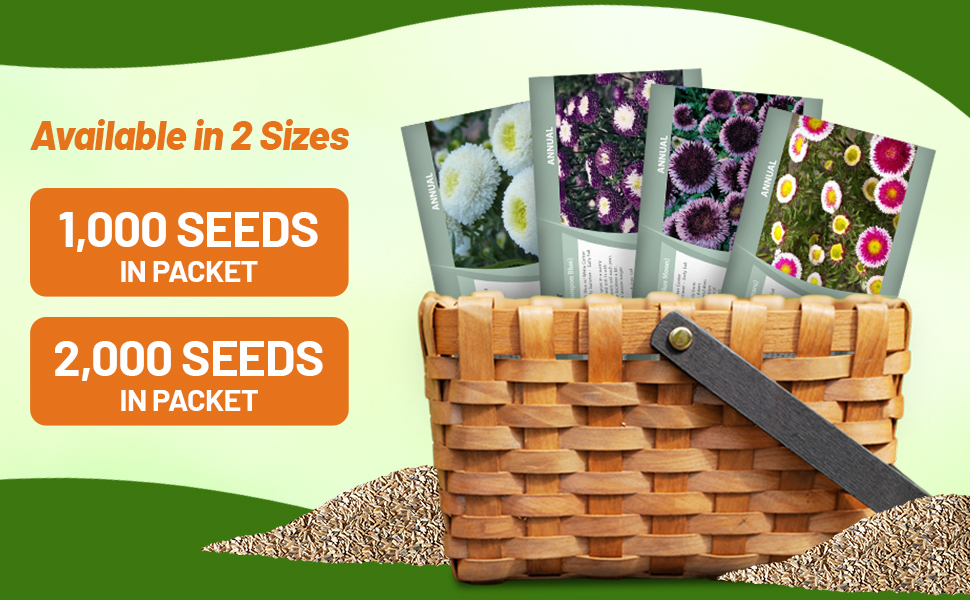
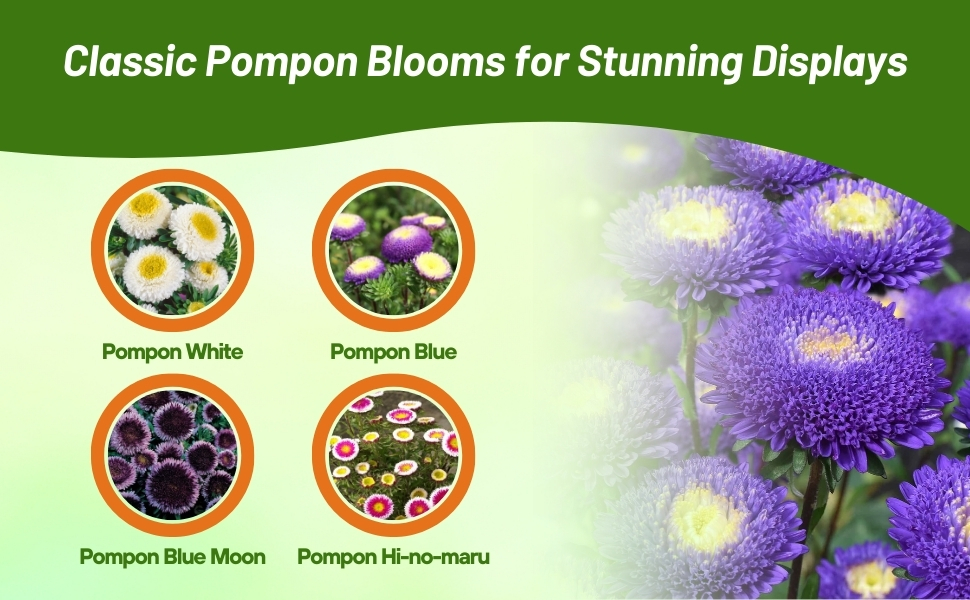
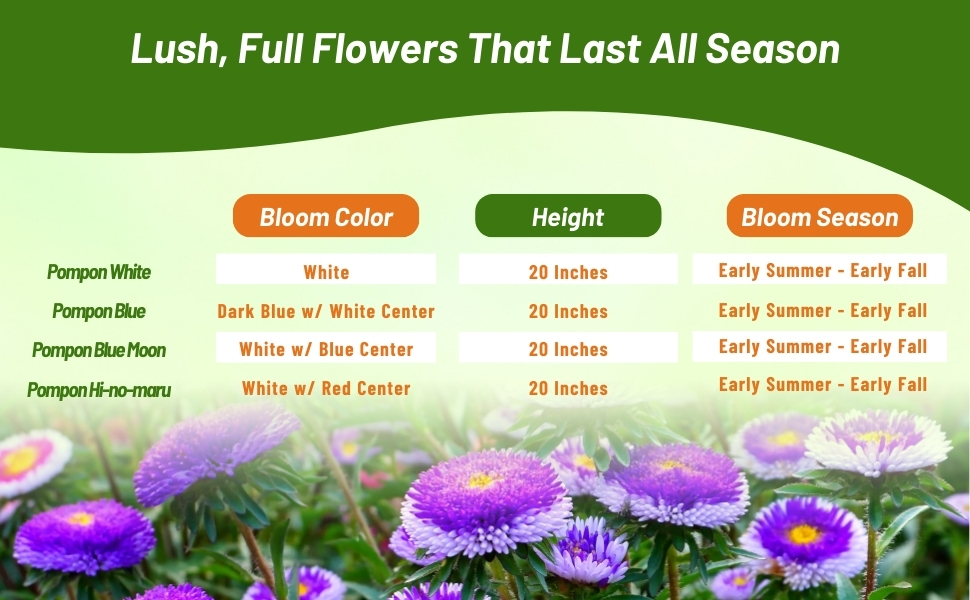
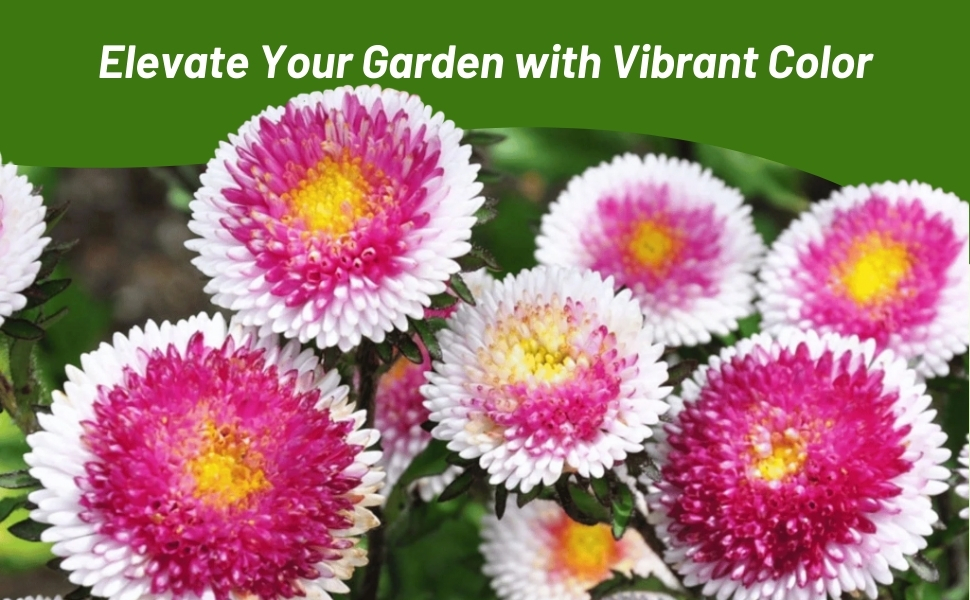
Aster (Callistephus Tall Pompon Blue) - Butterflies cannot resist Aster Callistephus, so start some Aster seeds to bring in the butterflies! This is one of the most unique Asters with massive disks of dark blue surrounding a white center. Bring some eye-catching color to the sunny garden by growing Asters. These Aster Pompons are also great for cutting with sturdy stems and a long vase-life.
Aster Pompon Blue is an annual so it grows quickly from Aster seeds. It is easy and fast to grow in the sunny garden, and does best in moist, well-drained soil. Callistephus Pompon Blue is wilt-tolerant, but all Asters do better if grown in different soil each year, so for subsequent plantings, change the location a bit. Deadhead Aster flowers to extend the bloom season even longer and keep the flowers coming back.
Start Aster seeds indoors 6 - 8 weeks before the last expected frost. Press the flowers seed into the soil and lightly cover it. Transplant Aster plants outdoors after frost danger has passed.
Common Questions
I thought asters were hardy perennials?
Many asters are hardy perennials but the annual aster, or China Aster, is not hardy and is grown as an annual.
Are they good for cutting?
Yes, they are excellent for cut flowers! Cut when 2/3 of the way open.
Why haven’t my asters bloomed?
There are a number of possible causes for this. Asters need full sun to grow well and bloom. They may be getting too much nitrogen, not have enough other nutrients, they may be stressed by drought or too much water, or it may just be too early. Asters bloom in fall, when days are growing shorter.
Can I grow China aster in containers?
Yes, just be mindful that they will not bloom until later summer, so combine them with summer bloomers. Make sure the container is large; they grow 24 inches tall, and use a commercial potting mix.
Do aster attract pollinators?
Yes they are butterfly magnets!
Are asters deer resistant?
Yes, asters tend to be deer resistant.
Can I grow asters in containers?
Yes, smaller varieties are fine in containers.
Planting Directions
TEMPERATURE
60 - 70F
AVERAGE GERM TIME
7 - 21 days
LIGHT REQUIRED
Yes
DEPTH
Cover seed with topsoil thinly after sowing
SOWING RATE
3 - 5 seeds per plant
MOISTURE
Keep soil slightly moist but not wet
PLANT SPACING
9 - 12 inches
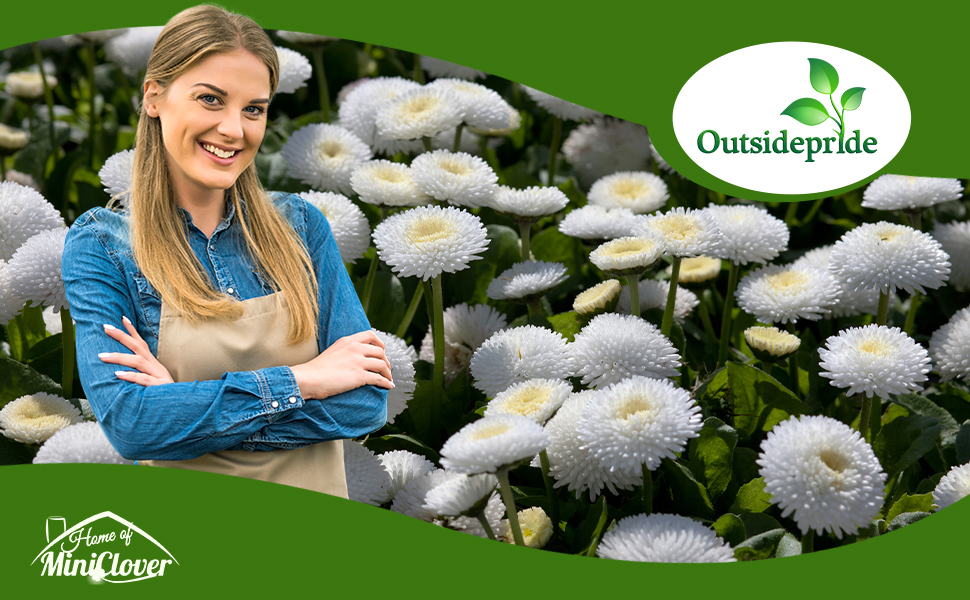
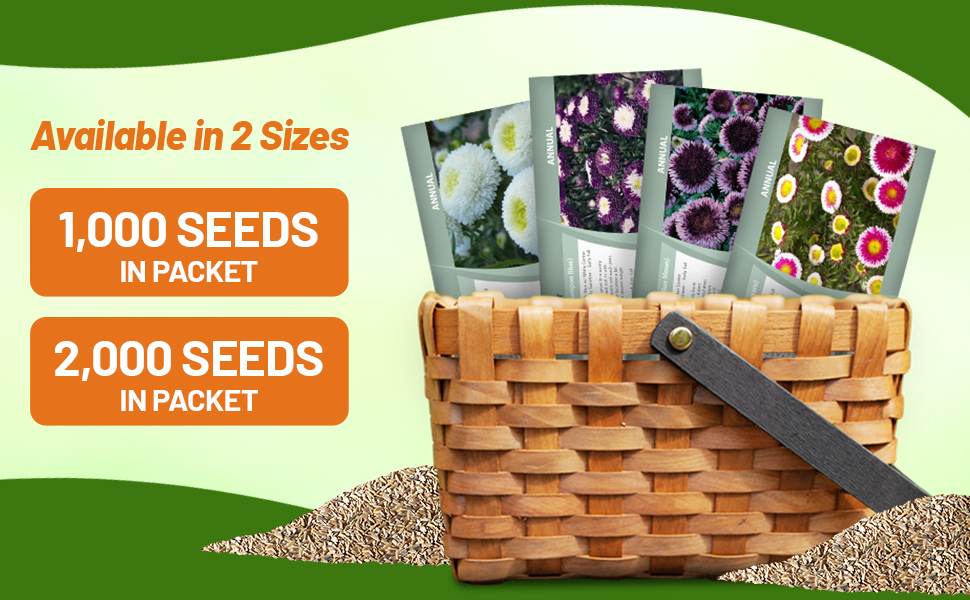
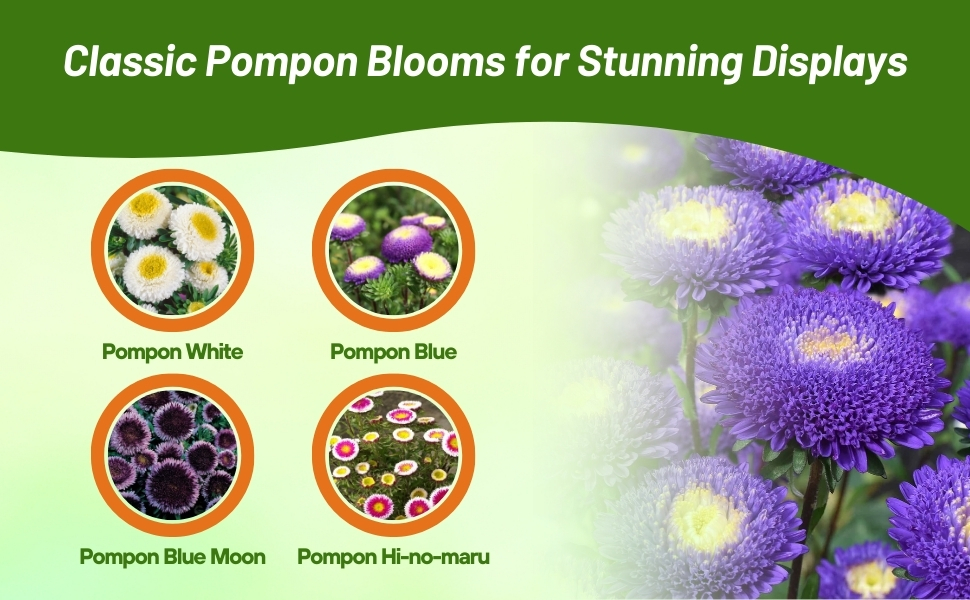
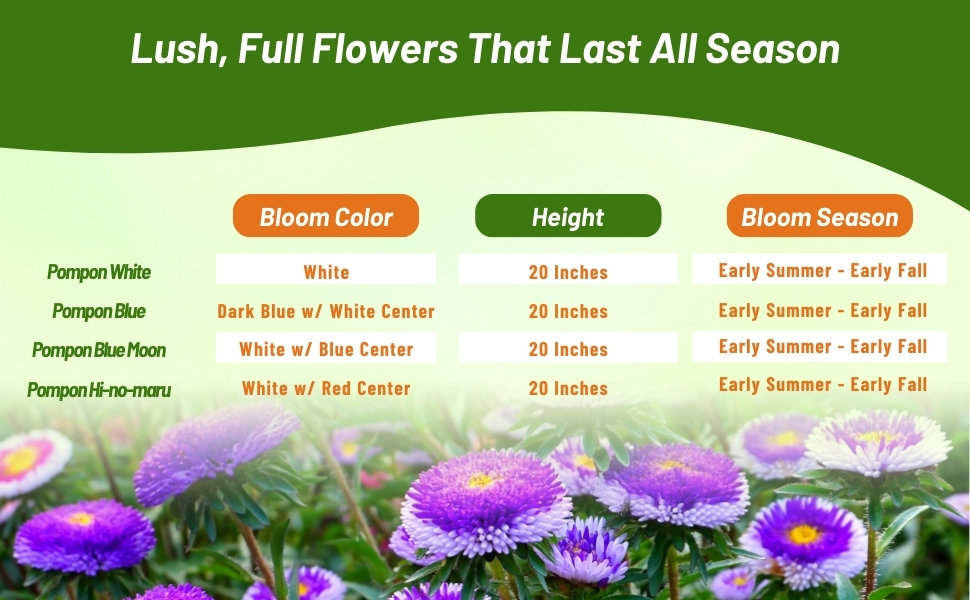
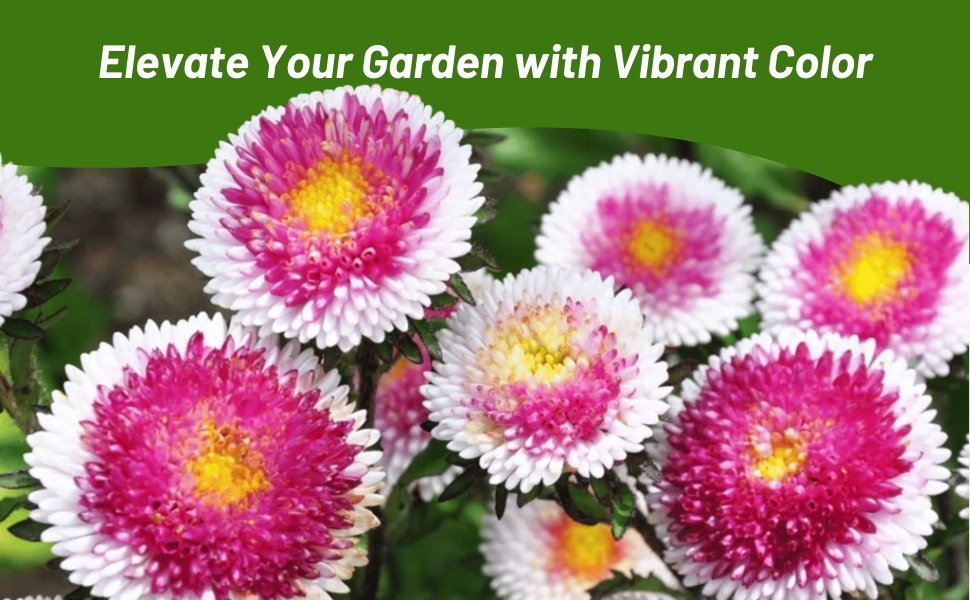
Aster (Callistephus Tall Pompon Hi-no-maru) - What an incredibly unique annual that can be grown from Aster seeds! Hi-no-maru Aster is similar to Blue Moon Aster; however, this one is white with a red center instead of a blue center. Combine the two varieties together for a stunning red, white and blue combination! Aster Hi-no-maru reaches 20 inches in height, has large pompons which are 2 - 3 inches wide and simply loaded with petals. Massive disks of red all centered on a white outer. What a wonderful visual display for both the flower border and the vase.
Aster Hi-no-maru is an annual so it grows quickly from flower seed. This Aster plant is also irresistible to butterflies. It is easy and fast to grow in the sunny garden, and does best in moist, well-drained soil. Callistephus Pompon Hi-no-maru is wilt-tolerant, but all Asters do better if grown in different soil each year, so for subsequent plantings, change the location a bit. Deadhead Aster flowers to extend the bloom season even longer and keep the flowers coming back.
Start Aster seeds indoors 6 - 8 weeks before the last expected frost. Press the flowers seed into the soil and lightly cover it. Transplant Aster plants outdoors after frost danger has passed.
Common Questions
I thought asters were hardy perennials?
Many asters are hardy perennials but the annual aster, or China Aster, is not hardy and is grown as an annual.
Are they good for cutting?
Yes, they are excellent for cut flowers! Cut when 2/3 of the way open.
Why haven’t my asters bloomed?
There are a number of possible causes for this. Asters need full sun to grow well and bloom. They may be getting too much nitrogen, not have enough other nutrients, they may be stressed by drought or too much water, or it may just be too early. Asters bloom in fall, when days are growing shorter.
Can I grow China aster in containers?
Yes, just be mindful that they will not bloom until later summer, so combine them with summer bloomers. Make sure the container is large; they grow 24 inches tall, and use a commercial potting mix.
Do aster attract pollinators?
Yes they are butterfly magnets!
Are asters deer resistant?
Yes, asters tend to be deer resistant.
Can I grow asters in containers?
Yes, smaller varieties are fine in containers.
Planting Directions
TEMPERATURE
60 - 70F
AVERAGE GERM TIME
7 - 21 days
LIGHT REQUIRED
Yes
DEPTH
Cover seed with topsoil thinly after sowing
SOWING RATE
3 - 5 seeds per plant
MOISTURE
Keep soil slightly moist but not wet
PLANT SPACING
9 - 12 inches
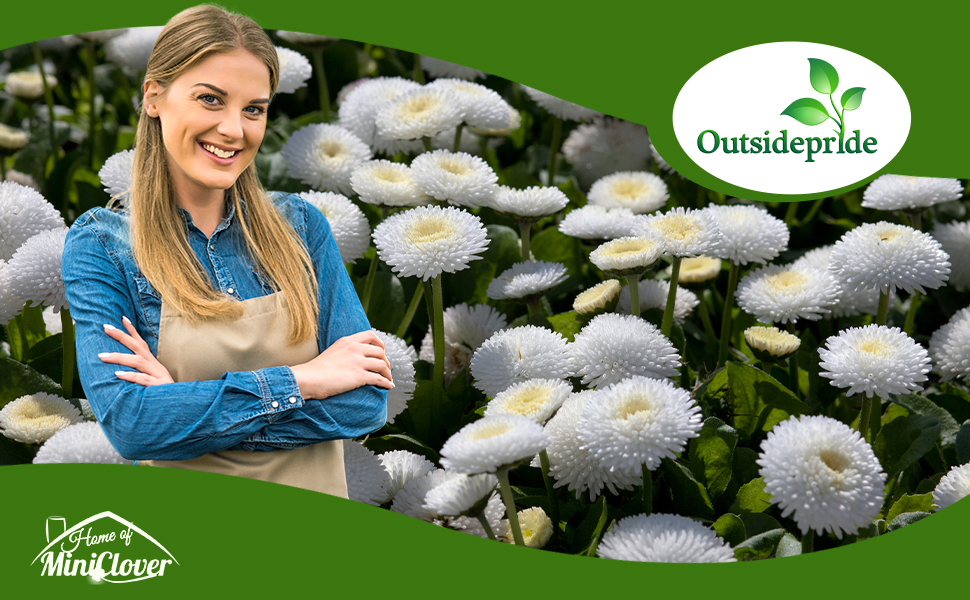
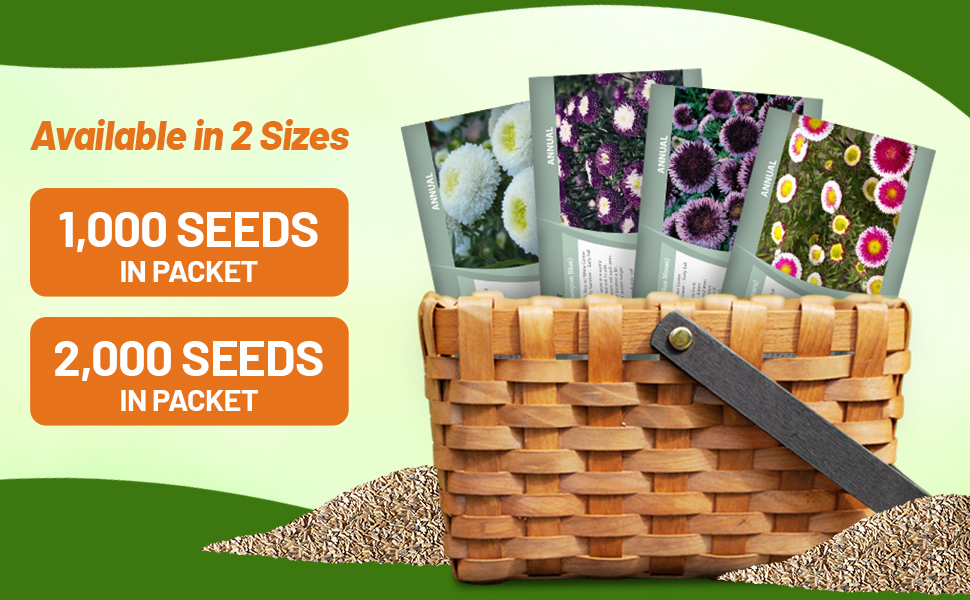
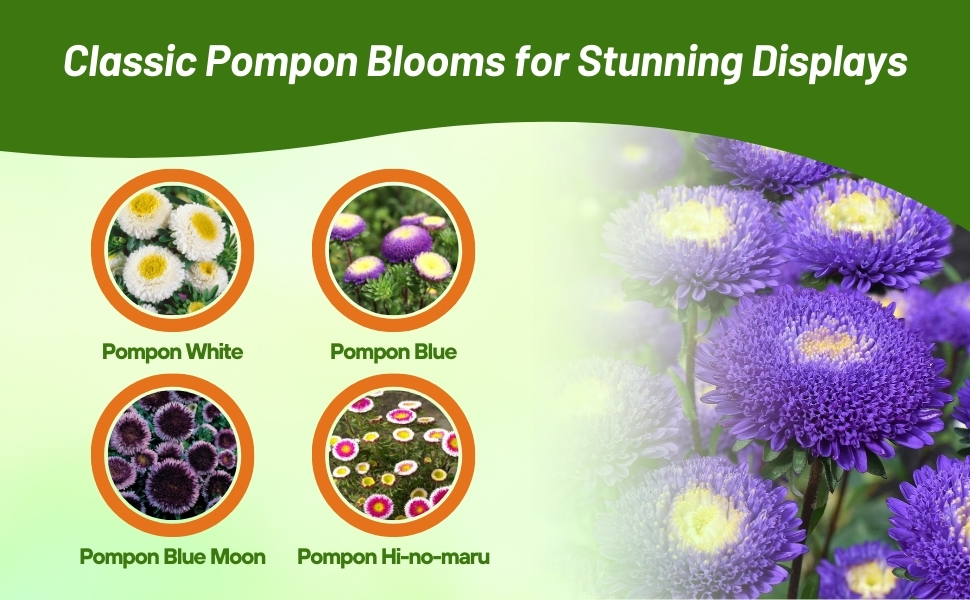
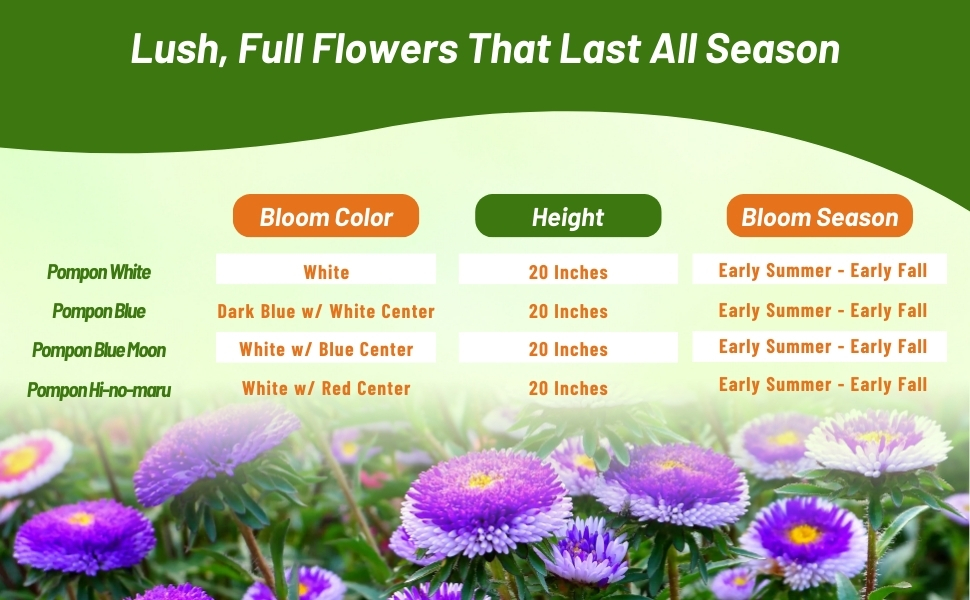
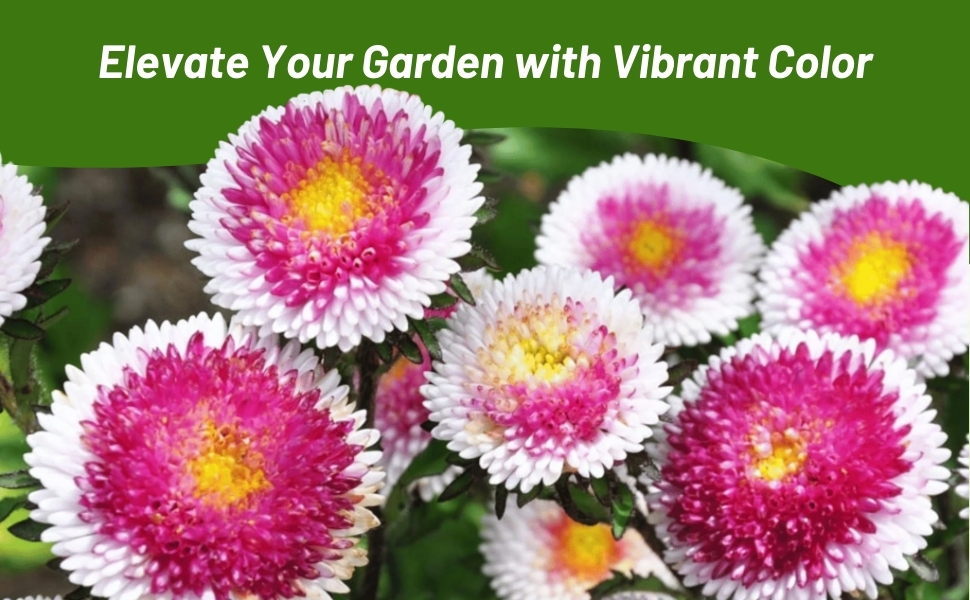
Aster (Callistephus Tall Pompon Blue Moon) - This is one of the most unique Asters plants you can start from flower seed! This white Aster Callistephus with a blue center grows to approximately 20 inches tall. Aster Blue Moon has large pompons which are 2 to 3 inches wide and simply loaded with petals. Massive disks of dark and light blue all centered on a white outer rim, adding eye-catching color to the flower border all summer long. Aster Pompon is exceptional as a cut flower and has a long vase-life indoors.
Aster Blue Moon is an annual so it grows quickly from flower seeds. It is also irresistible to butterflies. Asters are easy and fast to grow in the sunny garden and does best in moist, well-drained soil. Callistephus Pompon Blue Moon is wilt-tolerant, but all Asters do better if grown in different soil each year, so for subsequent plantings, change the location a bit. Deadhead flowers to extend the bloom season even longer and keep the flowers coming back.
Start the Aster seeds indoors in the early spring. Press the flower seeds into the soil and lightly cover. Transplant outdoors after frost danger has passed.
Common Questions
I thought asters were hardy perennials?
Many asters are hardy perennials but the annual aster, or China Aster, is not hardy and is grown as an annual.
Are they good for cutting?
Yes, they are excellent for cut flowers! Cut when 2/3 of the way open.
Why haven’t my asters bloomed?
There are a number of possible causes for this. Asters need full sun to grow well and bloom. They may be getting too much nitrogen, not have enough other nutrients, they may be stressed by drought or too much water, or it may just be too early. Asters bloom in fall, when days are growing shorter.
Can I grow China aster in containers?
Yes, just be mindful that they will not bloom until later summer, so combine them with summer bloomers. Make sure the container is large; they grow 24 inches tall, and use a commercial potting mix.
Do aster attract pollinators?
Yes they are butterfly magnets!
Are asters deer resistant?
Yes, asters tend to be deer resistant.
Can I grow asters in containers?
Yes, smaller varieties are fine in containers.
Planting Directions
TEMPERATURE
60 - 70F
AVERAGE GERM TIME
7 - 21 days
LIGHT REQUIRED
Yes
DEPTH
Cover seed with topsoil thinly after sowing
SOWING RATE
3 - 5 seeds per plant
MOISTURE
Keep soil slightly moist but not wet
PLANT SPACING
18 inches
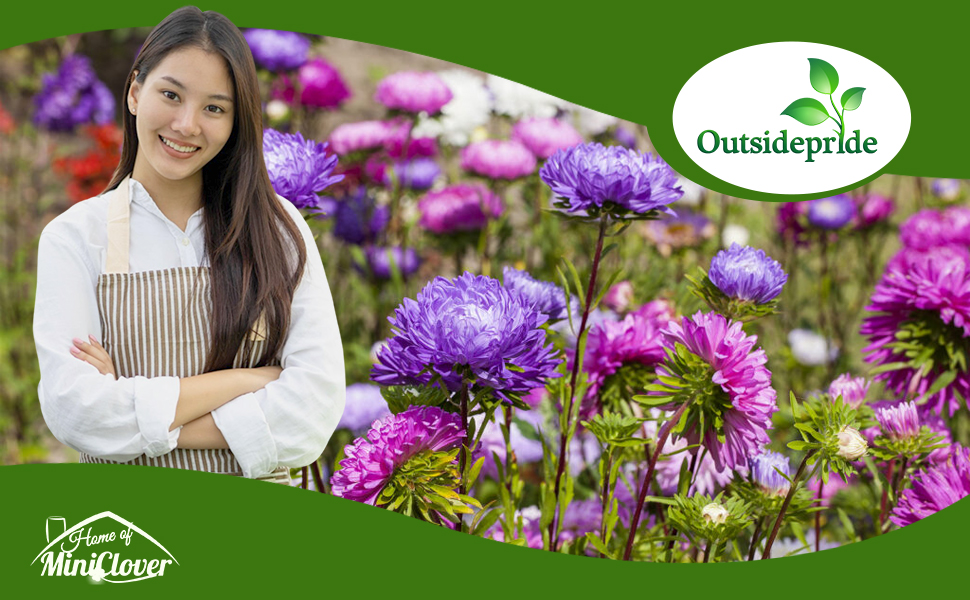
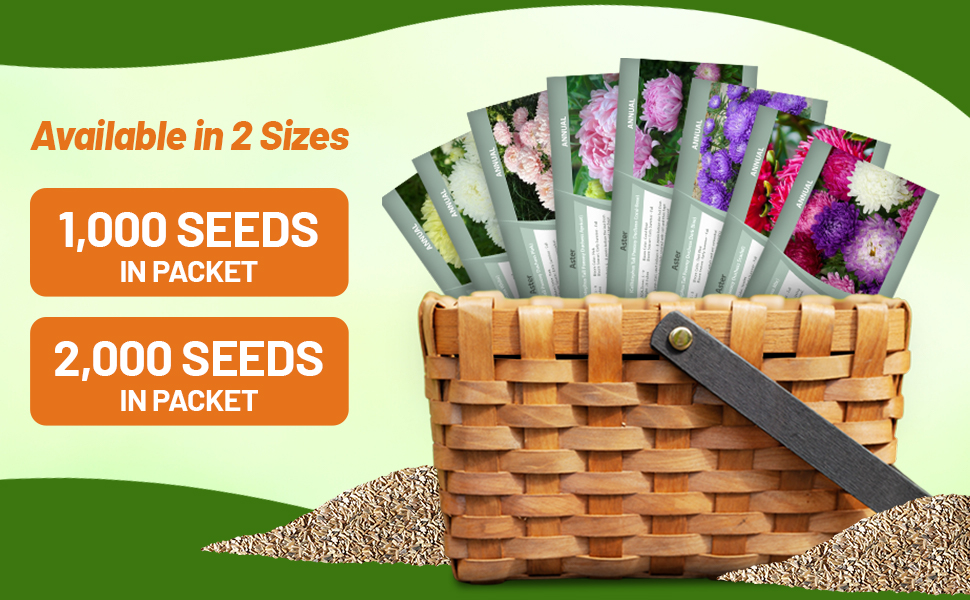
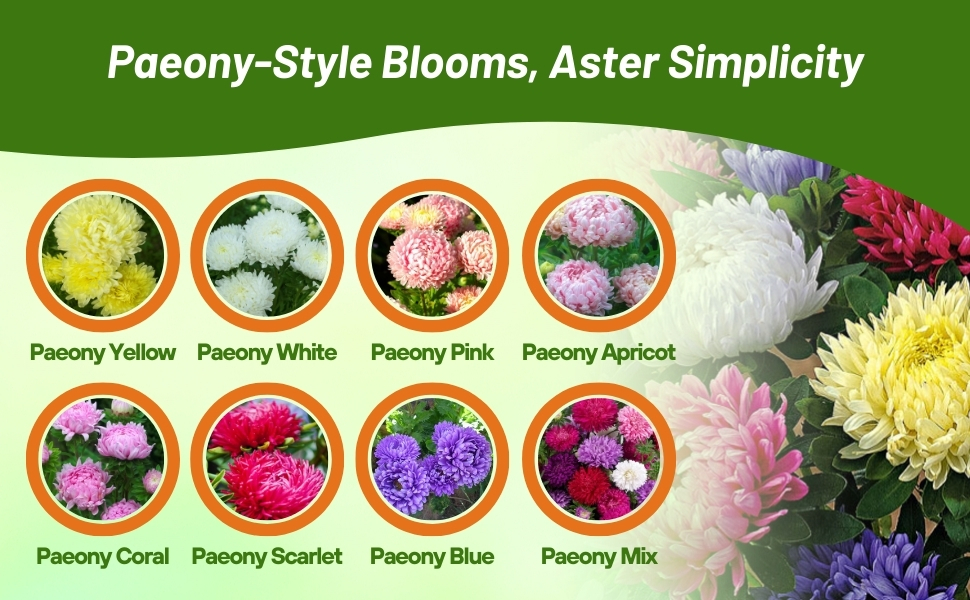
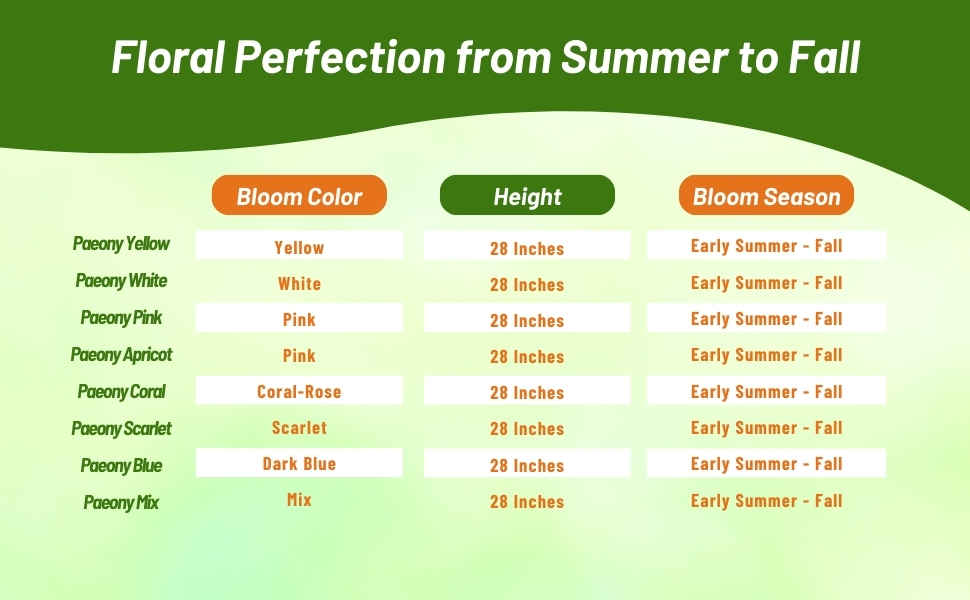
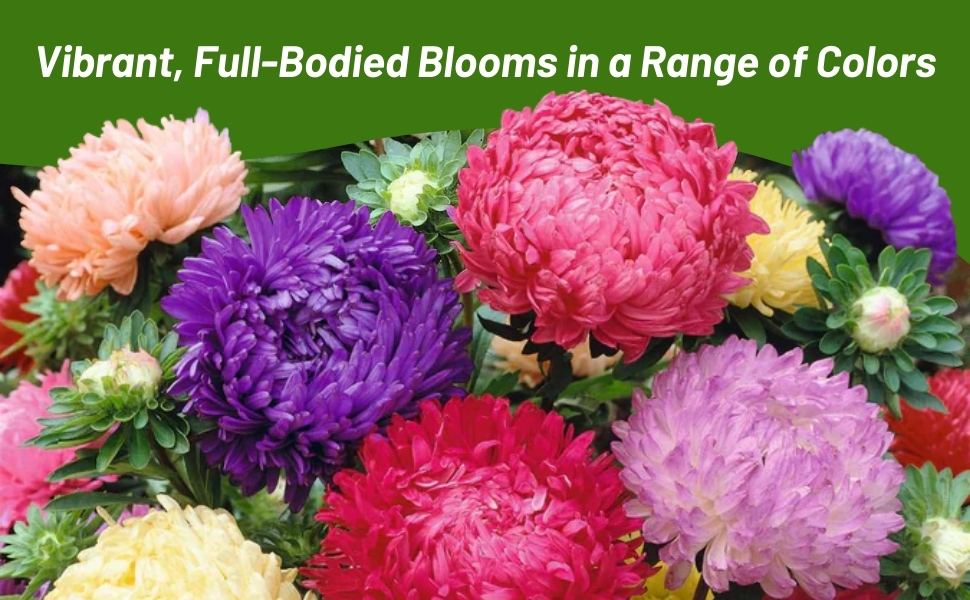
Aster (Callistephus Tall Paeony Duchess White) - No garden can have enough of these tall, double white Asters! By growing Aster seeds, you can have as many plants as your landscape can hold for a marvelous display of color! Aster Callistephus blooms don't have to stay outside because they are perfect for cutting and have long sturdy stems and a long vase-life. This Aster Duchess is chrysanthemum-like with very large, double incurved flowers. Chrysanthemums don't come until autumn, but Aster flowers arrive weeks earlier and will bloom until the first frost.
Start the Aster seeds in the spring, 6 - 8 weeks before the last frost. Press the flower seeds into the soil and lightly cover. Transplant outside once frost danger has passed and temperatures are consistently warm.
Common Questions
I thought asters were hardy perennials?
Many asters are hardy perennials but the annual aster, or China Aster, is not hardy and is grown as an annual.
Are they good for cutting?
Yes, they are excellent for cut flowers! Cut when 2/3 of the way open.
Why haven’t my asters bloomed?
There are a number of possible causes for this. Asters need full sun to grow well and bloom. They may be getting too much nitrogen, not have enough other nutrients, they may be stressed by drought or too much water, or it may just be too early. Asters bloom in fall, when days are growing shorter.
Can I grow China aster in containers?
Yes, just be mindful that they will not bloom until later summer, so combine them with summer bloomers. Make sure the container is large; they grow 24 inches tall, and use a commercial potting mix.
Do aster attract pollinators?
Yes they are butterfly magnets!
Are asters deer resistant?
Yes, asters tend to be deer resistant.
Can I grow asters in containers?
Yes, smaller varieties are fine in containers.
















